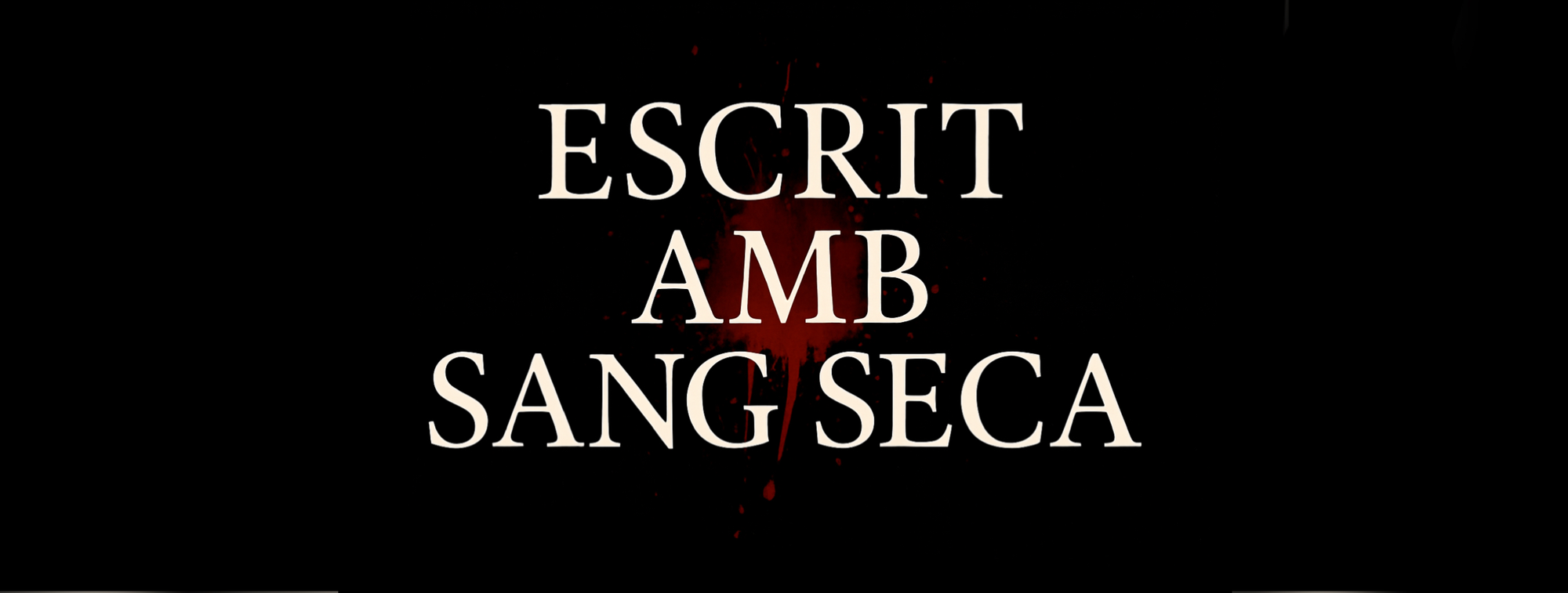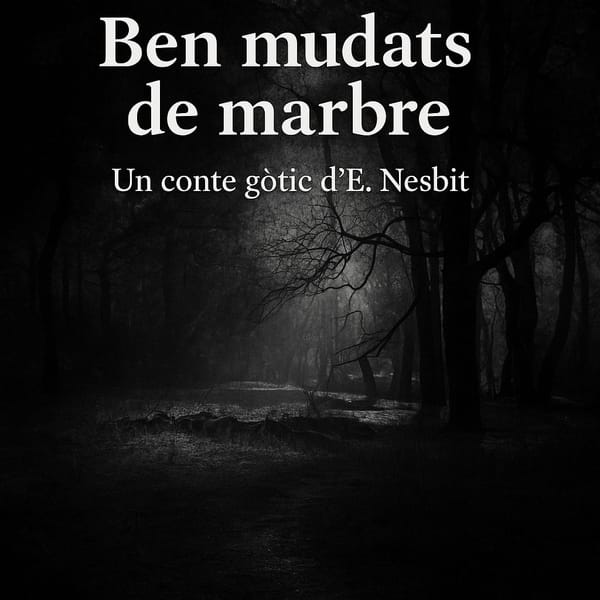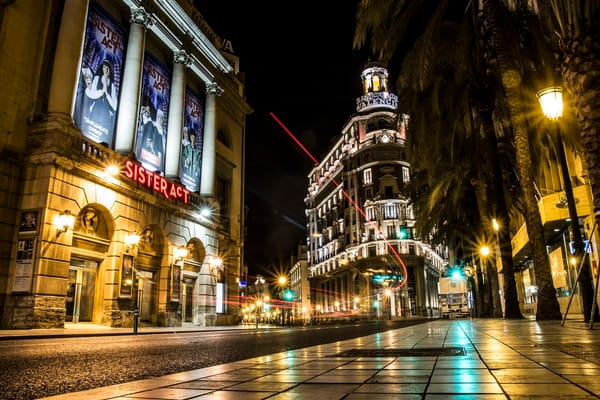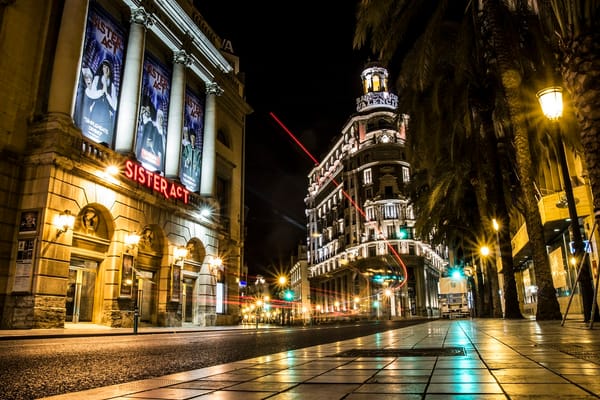God Is Gone, But I’m Still Hungry
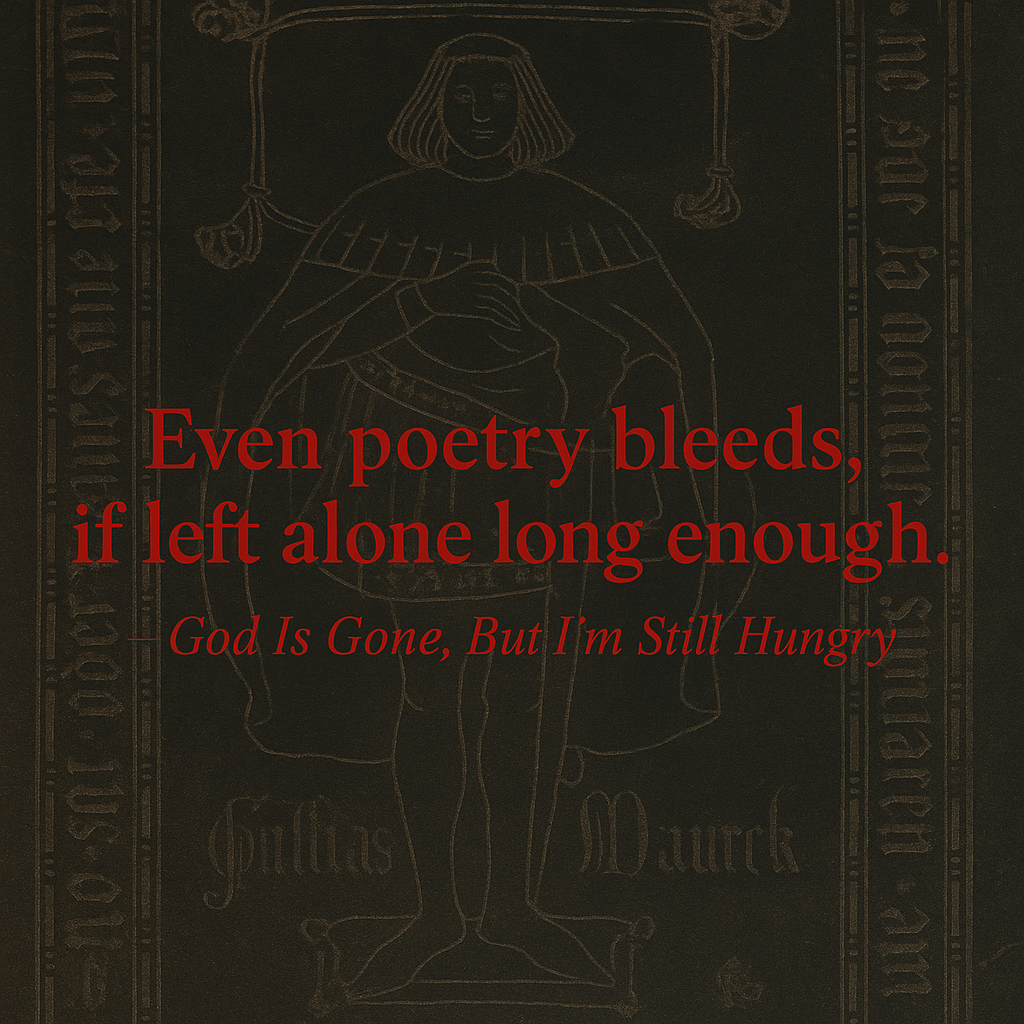
Adapted from the Catalan/Valencian by the author
This text is part of an ongoing literary project starring Guillem Mascaró, a Valencian vampire who has spent over three centuries watching the world slowly bleed out what little faith it had left.
The following fragment is just the beginning: a taste of his cynicism, his bleak lucidity, and his peculiar sense of hunger.
The verses by Ausiàs March are quoted from an existing English translation:
“No good can fall to me from time to come;
that which is nothing is best for me.”
— Ausiàs March, translated by Arthur Terry (Selected Poems, Edinburgh University Press, 1976)
Prologue
The Cathedral of València slept beneath a rotten light.
The floodlights, yellow and tired, cast long shadows across the damp stone. No more candles. No more mystery. Just functional lighting and the stench of ancient tourism. The sacred turned gentrified. A Holy Grail that could’ve held sangria, and no one would have blinked.
Guillem Mascaró crossed the nave like a man returning to the place where he’d been buried. Someone had left a side door open. Maybe by accident. Maybe no one thought it was worth closing anything anymore.
His footsteps echoed dull and broken on the cold marble. Like a sex worker’s shoes in the morgue, recognizing a colleague. Like the uncertain steps of a child at his brother’s funeral, with no one to hold his hand. It wasn’t sacred silence. Nor contemplative. Not even profane. No insult. It was the silence of decomposition.
He walked past the baptismal font.
Didn’t touch it.
No need.
He remembered it.
The cold stone.
The trembling water.
The bishop’s voice echoing like God was actually there.
Like the liturgy could tear a crack open in the sky.
Look at us — we exist!
As if repeating a gesture was the same as believing.
As if repetition wasn’t, in truth, just a way to silence doubt.
He remembered faith.
But not as light.
As weight.
Like a warm blanket thrown into fire.
An illusion that once gave warmth — now just smells like smoke.
How?
How does one believe again after watching the world strip off God without even shivering?
How not to laugh at those who still kneel?
He walked up to the main altar.
The monstrance lay there like a forsaken god.
A broken golden sun. Useless.
It gleamed the way dead things gleam: the light doesn’t reflect — it ricochets.
A circle with no center.
An eye with no gaze.
Once, he had bowed his head to that circle.
Once, he had cried.
Once, he had sworn.
Once, he had believed.
But that wasn’t memory anymore.
It was ruin. A stone lodged in the skull.
No fire.
No music.
Mute.
He turned.
In the side chapel to his right, a man was kneeling.
Praying. Slowly, stubbornly.
Voiceless, but with intention.
Guillem Mascaró approached.
The man was wearing a cassock.
Just beneath the wooden pew was the tomb of Ausiàs Marc.
The engraved letters, once proud, were now veiled in dust and shadow.
Like a verse offered to a world that no longer exists.
Temps d’avenir en negun bé·m pot caure;
ço que és no-res a mi és lo millor.
“No good can fall to me from time to come;
that which is nothing is best for me.”
“Still waiting for an answer?” Mascaró asked, his voice low and dry.
The man opened his eyes, slowly. He looked at him.
“We’re all waiting. I’m just waiting for an answer, yes,” he replied, like he’d heard the question before.
Mascaró exhaled a soft breath.
“There’s no one left to answer.”
“You don’t know that.”
“I’ve seen it.”
“So have I.”
Silence.
Mascaró looked at him.
His eyes were tired, but not defeated.
Still burning.
A glint. A flicker.
As if he still believed someone was listening.
As if he knew.
He sat beside him.
The way only someone who’s walked for centuries can sit.
“What did you see?”
It wasn’t an interrogation.
It was archaeological.
A cold-blooded excavation.
As if Mascaró wanted to extract the last shard of soul before deciding whether to kill him.
“Christ,” the priest said.
Mascaró closed his eyes. Expecting the usual metaphor.
“And where did you see him? In a sunset? A little girl’s laugh?”
“By my mother’s deathbed. At her feet. He came for her. She spoke to him.”
“And how do you know it was Christ and not the Devil? Or her brain shutting down, drowning in lack of oxygen?”
Mascaró’s gaze stayed forward.
It wasn’t a provocation.
It was a serious question.
The priest didn’t answer.
Mascaró continued.
“Do you see anyone now?”
“No.”
“I’m sorry for you, then.
But I haven’t found anyone who sees anything.”
The man looked at him.
As if he understood what was about to happen.
He made the sign of the cross.
“I’m not afraid of you,” he said.
Mascaró didn’t reply.
With inhuman speed, he sank his fangs into the man’s neck.
He felt the blood, thick and hot, flood his mouth.
He drank with hunger.
With greed.
With the calm of a monster who has all the time in the world—
and the solemnity of a priest saying Mass in reverse.
He felt the warmth filling him as the priest’s heart began to fail.
Still pumping.
Still resisting.
He stopped and looked into his eyes.
Still shining.
Why?
He left the man weak but alive, sitting on the bench.
Then he turned and walked away, leaving the cathedral emptier than before.
Beneath the wooden pew, the tomb of Ausiàs Marc remained.
The once-proud inscription now veiled in dust, in shadow.
And in a new, dark, narrow stain.
Blood?
Who knows.
Even poetry bleeds, if left alone long enough.
God was dead.
Nothing made sense.
But Mascaró hadn’t yet been able to prove it.
